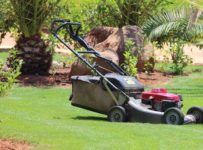When it comes to maintaining a thriving garden, pollination plays a critical role in the successful reproduction of plants. While honeybees are well-known pollinators, the lesser-known mason bees are nature’s unsung heroes in the pollination process. These solitary and gentle creatures are highly efficient and can significantly boost pollination in your garden. In this article, we will explore the incredible capabilities of mason bees and how a mason bee house can be the key to fostering a flourishing ecosystem in your outdoor space.

1. Understanding the Mason Bee
The mason bee, also known as Osmia species, is a native solitary bee found across various regions worldwide. Unlike honeybees, which live in colonies and produce honey, mason bees are solitary insects. Each female mason bee builds her own nest to lay eggs, rather than forming a hive. Mason bees are so named due to their exceptional ability to construct nests using mud or other materials, thus exhibiting masonry-like behavior.
These bees are non-aggressive and seldom sting, making them safe and friendly pollinators to have around. In addition to their docile nature, mason bees are remarkable pollinators, capable of carrying out a considerable amount of pollination work in a short period.
2. Importance of Pollination in Your Garden
Pollination is the process by which pollen from the male part of a flower (the stamen) is transferred to the female part (the stigma), leading to fertilization and the development of seeds and fruit. This crucial step enables plants to reproduce and is vital for the production of fruits, vegetables, nuts, and seeds. Without pollination, many plants would fail to set fruit, leading to reduced crop yields and potential disruptions in the ecosystem.
In a garden setting, effective pollination is particularly essential for fruit trees, berry bushes, and flowering plants, as it directly impacts the quantity and quality of the harvest. Ensuring abundant and diverse pollinators, such as mason bees, can substantially enhance your garden’s productivity.
3. The Efficiency of Mason Bees in Pollination
One of the most significant advantages of mason bees over honeybees is their efficiency in pollination. Mason bees are early risers in the spring, emerging weeks before honeybees and other pollinators. This early activity is highly beneficial for early-blooming plants that would otherwise struggle to receive adequate pollination during colder months.
The mason bee’s pollination technique also differs from honeybees. While honeybees focus on collecting nectar and pollen for their hive, mason bees primarily forage for pollen. As they visit flowers to gather pollen, they inadvertently transfer pollen from one flower to another, facilitating cross-pollination. Their hairy bodies efficiently trap and transport pollen, making them unintentional pollination powerhouses.
Furthermore, mason bees are highly focused on local foraging. They tend to remain within a short radius from their nesting site, ensuring that the pollen they collect is predominantly from plants in your garden or nearby natural areas. This behavior significantly increases the chances of pollinating the plants that need it the most, leading to healthier and more abundant crops.
4. The Role of a Mason Bee House
To encourage mason bees to take up residence in your garden, providing a suitable habitat is essential. A mason bee house is a simple and effective way to attract these industrious pollinators to your outdoor space.
Mason bee houses mimic the natural cavities that mason bees prefer for nesting. They consist of a wooden structure with tubes or cavities of the right size for mason bees to lay their eggs. The female mason bee will collect mud or other materials to construct individual chambers for each egg. Each chamber will contain a supply of pollen and nectar to nourish the developing larvae.
Position the mason bee house in a sunny location with easy access to a variety of flowering plants. Bees are highly attracted to vibrant and fragrant flowers, so planting a diverse range of blooming plants will further entice them to visit your garden.
5. Low-Maintenance Mason Beekeeping
Unlike traditional honeybee keeping, mason beekeeping is low-maintenance and does not require specialized skills. Once you set up a mason bee house, the bees will find it on their own, and the pollination process will begin without any intervention.
During the colder months, mason bee larvae will overwinter inside the bee house, hibernating until spring. Unlike honeybees, mason bees do not need continuous feeding or honey extraction, as they do not produce honey. Their natural instincts and local foraging behavior make them self-sufficient, allowing them to thrive with minimal human intervention.
6. Boosting Biodiversity and Conservation
Introducing a mason bee house to your garden not only benefits your plants but also supports biodiversity and conservation efforts. Mason bees are native pollinators, and by attracting them to your garden, you contribute to the preservation of local ecosystems. Encouraging a diverse range of pollinators promotes a balanced ecosystem, reducing the risk of plant diseases and supporting wildlife that relies on flowering plants for food and shelter.
Conclusion
Incorporating a mason bee house into your garden can be a game-changer for pollination. These industrious, gentle creatures are exceptional pollinators, working diligently to ensure the success of your fruit trees, berry bushes, and flowering plants. By providing a welcoming habitat, you not only attract mason bees but also play an active role in conserving native pollinators and promoting biodiversity. As nature’s unsung heroes, mason bees offer a natural and efficient solution to boost pollination in your garden, leading to a flourishing and vibrant outdoor space for you and the local ecosystem to enjoy.



